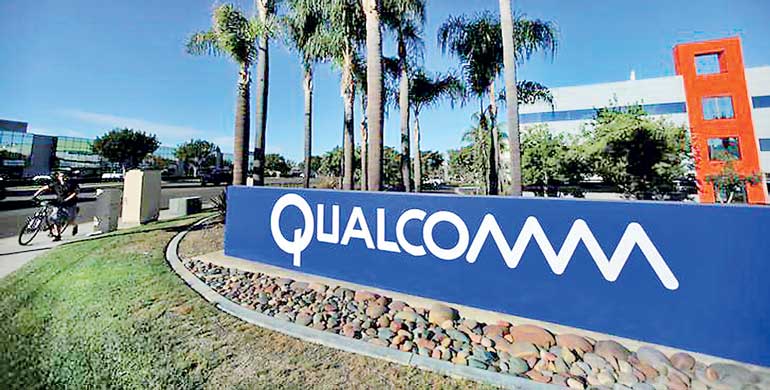Tuesday Feb 24, 2026
Tuesday Feb 24, 2026
Tuesday, 2 January 2018 00:00 - - {{hitsCtrl.values.hits}}

New York/London (Reuters): Mergers and acquisitions had another strong year in 2017, reaching their third highest annual level since the 2008 financial crisis, as CEOs were emboldened by buoyant markets to pursue transformative deals, even when their targets resisted.
Companies negotiated large deals this year even before they had certainty that U.S. tax reforms advocated by President Donald Trump’s Republican party would become law, as economic growth around the world, including in Europe, accelerated.
Setting 2017 apart was the willingness of potential acquirers to approach their targets unsolicited. In some instances, as with chipmaker Broadcom Ltd’s $103 billion cash-and-stock bid to take over peer Qualcomm Inc, the target companies refused to engage in talks.
“In cases where companies have been sold, close to 80% of them were initiated by the buyer approaching the seller as opposed to companies who decided to sell,” said Michael Carr, global co-head of mergers & acquisitions at Goldman Sachs Group Inc.
“Some of this is driven by buyers who believe they will not face competition, which encourages them to aggressively pressure their targets confidentially with the implied threat that they will go public,” Carr added.
Unsolicited takeover approaches helped push global M&A to $3.54 trillion in 2017, roughly in line with last year’s $3.59 trillion, according to preliminary Thomson Reuters data. The peak M&A year since 2008 was 2015, when M&A totaled $4.22 trillion.
The dealmaking environment has been favorable in the last three years due to the availability of cheap debt financing and high CEO confidence. Geopolitical turmoil, including a potential confrontation over North Korea’s nuclear ambitions and faltering negotiations to form a coalition government in Germany, failed to dampen M&A spirits.
“Geopolitical uncertainty has had relatively little impact on our deals pipeline this year,” said Cyrus Kapadia, vice chairman of investment banking at Lazard Ltd.
“Boards are supportive of deal-making where there is clear strategic rationale, and even in Britain, where Brexit is causing some uncertainty, companies are still pursuing large-scale deals to enhance organic growth,” he added.
Europe, Asia-Pacific M&A UP
A 16% year-on-year drop in M&A in the United States to $1.4 trillion was offset on a global basis by a 16% rise in M&A in Europe to $856 billion and an 11% rise in Asia-Pacific M&A to $912 billion, according to Thomson Reuters data.
Among this year’s biggest acquisitions were U.S. drugstore chain operator CVS Health Corp’s $69 billion agreement to buy health insurer Aetna Inc; Walt Disney Co’s $52 billion deal to buy film and television businesses from Rupert Murdoch’s Twenty-First Century Fox Inc; and aerospace supplier United Technologies Corp’s $30 billion agreement to buy avionics maker Rockwell Collins Inc.
Many of these deals had stock as part of the purchase price, with acquirers emboldened to use their own shares as currency given their high stock market valuations, as opposed to offering just cash.
“We are seeing a stock component becoming a bigger portion of the offers being made, perhaps because the deals are bigger and transformative, and acquirers are looking to offer targets additional upside in these transactions,” said Stephen Arcano, an M&A partner at law firm Skadden, Arps, Slate, Meagher & Flom LLP.
Private equity-backed M&A activity totaled $322.6 billion globally in 2017, a 27% increase compared to last year, as more buyout firms sought to put money they have raised from their investors to work.
Dealmakers say the prospect of the U.S. tax overhaul has so far had little influence on deal negotiations.
“If you are an acquirer, you are likely modeling a deal where the synergies and the incremental value of combining is what is driving your purchase price and your premium, not an assumption on the underlying tax rate,” said Chris Ventresca, global M&A co-head at JPMorgan Chase & Co.
“If you are considering selling the entire company, as long as the buyer is willing to pay your price, you take the certainty of crystallizing a premium now with some ability to participate in tax reform upside via buyer stock,” Ventresca added.